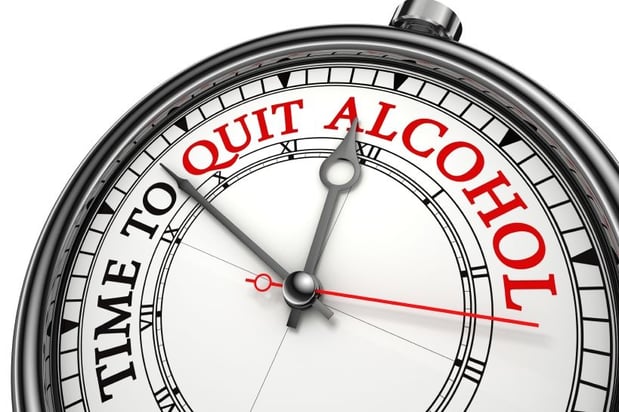Why would anyone ever quit drinking, drugging, eating, gambling or smoking? The answer may seem simple to some, but others may not find it as easy as you might suppose. Quitting often happens after a long-term battle with addiction. But how does the addict or alcoholic determine when quitting is a good idea? That is a tough question.
When Are Addictive Behaviors Deemed "Normal" vs. Problematic?
Overindulging in alcohol, drugs, food, gambling and smoking are all behaviors that exist in our social environment in varying degrees of acceptability. We all know people who do these things with impunity and no apparent consequences. Perhaps these activities are socially acceptable in the circles they travel or are deemed "normal" by their peers, family and friends.
When do these addictions stop being socially-acceptable? Depending on the social environment that exists for any of us, there are varying degrees of what is considered "normal." Once again, we must define for each person the standards that make these behaviors okay or not okay to participate in. If addiction has become a problem in a person's life, it may be an intervention by those people surrounding them that makes it clear that addiction is no longer acceptable behavior. An intervention may or may not be the motivation that a person needs to make the necessary changes in their behavior.
The Influence of Your Peers
Many addicts will not take an intervention by others--or a group's assessment of their behavior--to heart. Instead, they may stop the addictive behavior when in the company of this group, may leave the group, or seek new companions and social environments that are more conducive to embracing the behaviors. They may do all of these. Such measures are common under these circumstances. An addict who has reacted to intervention in this way may continue to spiral into deeper association with other addicts and habitual use of substances or behaviors, until such time as they eschew all social interactions to avoid anyone's knowledge of what and how much they are doing. Again, this pattern is not unusual.
What, then, can motivate addicts to recognize these patterns and become motivated to stop? A combination of factors will need to be present for them to become ready to address the problem, and most often includes an intrinsic need or inner drive to stop the disagreeable consequences that have begun to surface surrounding their actions. This may be a good time for worried friends, family members and co-workers to talk to them about their concerns with the choices being made.
Quitting for Yourself
If the addict is willing to hear the concerns of others, he may be amenable to finding solutions as well. This is a good start, but the rest of the motivation will have to come from within the addict himself. While it may be possible for an addict to initially desire to quit in order to keep a relationship or a job, or to stop having legal consequences occur, the addict needs to determine that he is quitting for himself.
If intervention by friends and family or the opinions of others cause pain and hurt, the addict may then become discouraged and decide not to quit. Until an addict is determined to quit because he cares enough about himself, it will not happen. All other motivating factors can, and will, change in time. The addict must care enough to make the radical changes that recovery will demand.








